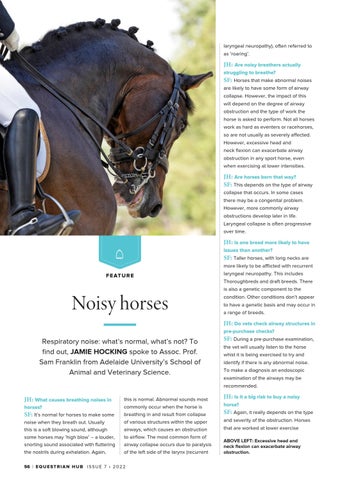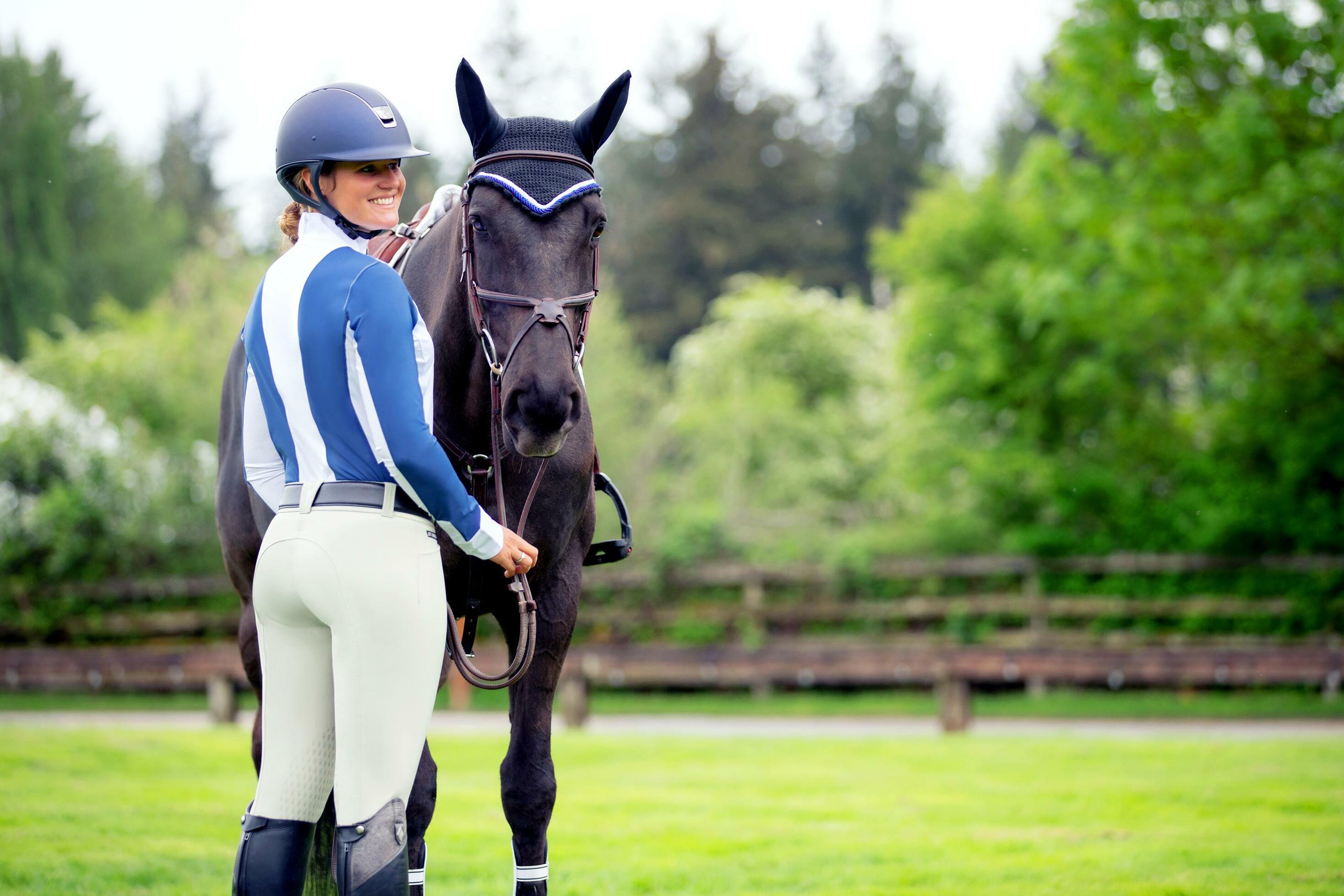laryngeal neuropathy), often referred to as ‘roaring’.
JH: Are noisy breathers actually struggling to breathe?
SF: Horses that make abnormal noises are likely to have some form of airway collapse. However, the impact of this will depend on the degree of airway obstruction and the type of work the horse is asked to perform. Not all horses work as hard as eventers or racehorses, so are not usually as severely affected. However, excessive head and neck flexion can exacerbate airway obstruction in any sport horse, even when exercising at lower intensities.
JH: Are horses born that way? SF: This depends on the type of airway collapse that occurs. In some cases there may be a congenital problem. However, more commonly airway obstructions develop later in life. Laryngeal collapse is often progressive over time.
JH: Is one breed more likely to have issues than another?
SF: Taller horses, with long necks are more likely to be afflicted with recurrent
F E AT U R E
laryngeal neuropathy. This includes Thoroughbreds and draft breeds. There
Noisy horses
is also a genetic component to the condition. Other conditions don’t appear to have a genetic basis and may occur in a range of breeds.
JH: Do vets check airway structures in pre-purchase checks?
Respiratory noise: what’s normal, what’s not? To find out, JAMIE HOCKING spoke to Assoc. Prof. Sam Franklin from Adelaide University’s School of Animal and Veterinary Science.
SF: During a pre-purchase examination, the vet will usually listen to the horse whist it is being exercised to try and identify if there is any abnormal noise. To make a diagnosis an endoscopic examination of the airways may be recommended.
JH: What causes breathing noises in horses? SF: It’s normal for horses to make some noise when they breath out. Usually this is a soft blowing sound, although some horses may ‘high blow’ – a louder, snorting sound associated with fluttering the nostrils during exhalation. Again,
this is normal. Abnormal sounds most commonly occur when the horse is breathing in and result from collapse of various structures within the upper airways, which causes an obstruction to airflow. The most common form of airway collapse occurs due to paralysis of the left side of the larynx (recurrent
56 | E Q U E S T R I A N H U B I S S U E 7 • 2 0 2 2
JH: Is it a big risk to buy a noisy horse?
SF: Again, it really depends on the type and severity of the obstruction. Horses that are worked at lower exercise ABOVE LEFT: Excessive head and neck flexion can exacerbate airway obstruction.






















